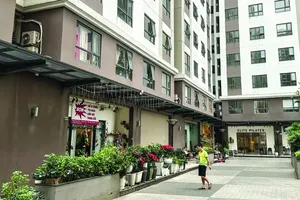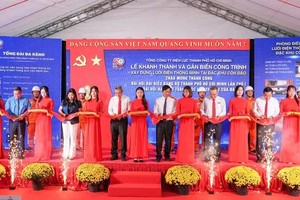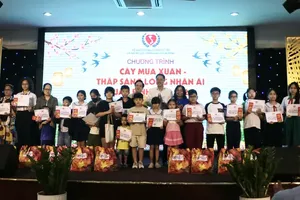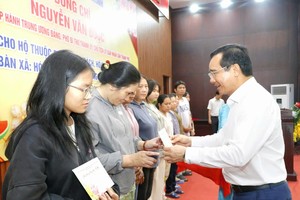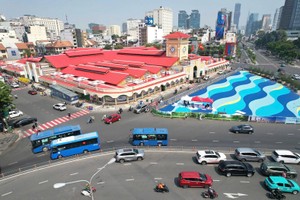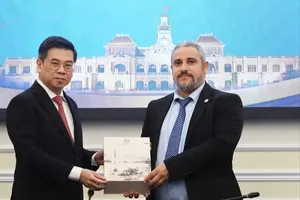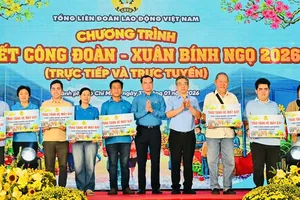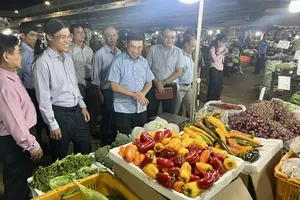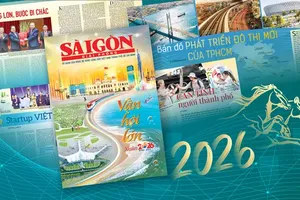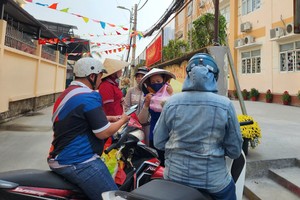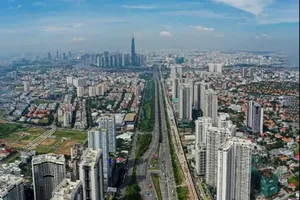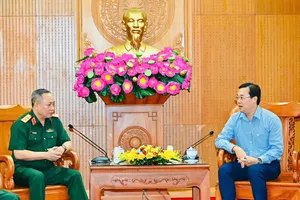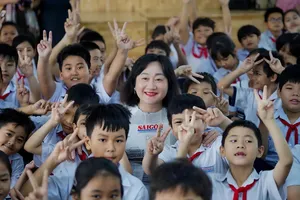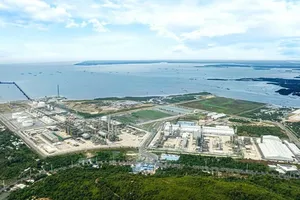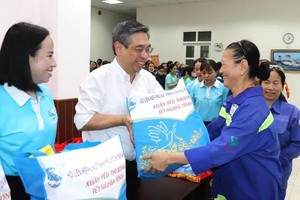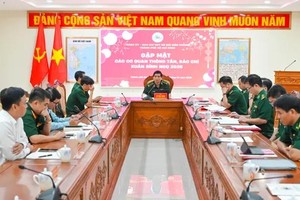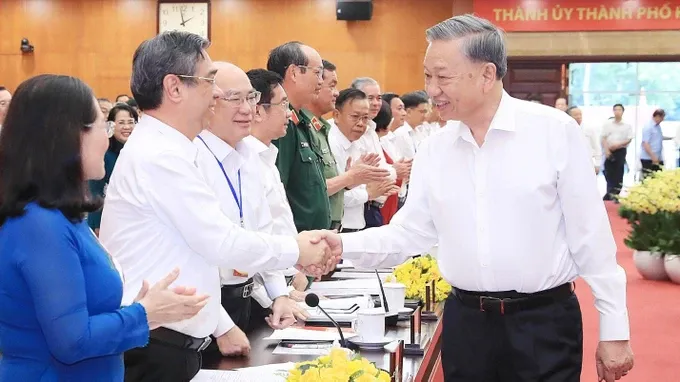
The most outstanding highlights of HCMC in 2024 are:
- HCMC’s projected GRDP growth is of approximately 7.17 percent;
- Budget revenue has, for the first time, surpassed the VND-500-trillion threshold (estimated at VND502 trillion (US$19.8 million), a 12-percent increase from 2023);
- The city’s budget comprises around 27 percent of the national budget revenue;
- Numerous tasks have been completed exceptionally, marking new milestones.
For 2025, HCMC has boldly outlined nine core task groups and solutions, creating new momentum to achieve GRDP growth exceeding 10 percent, accumulating sufficient strength and potential for the country to enter a “New Development Era – Vietnamese National Emergence”.
Decentralization and delegation
In his closing remarks at the 10th plenary session of the 13th Central Committee of the Communist Party of Vietnam, addressing strategic directions and solutions for the upcoming period, General Secretary To Lam explicitly emphasized the need to accelerate decentralization with the principle of “local decisions, local implementation, local responsibility”; encouraging local self-reliance, proactiveness, and creativity.
HCMC has identified this as a breakthrough policy for urban development. For the city, robust decentralization and delegation will liberate the potential of all districts and Thu Duc City, enhancing administrative reform and autonomy at the grassroots level.
HCMC stands out as one of the few localities in the country to receive such extensive and focused attention from the central authorities.
Since 1982, the Central Government and the Politburo have issued numerous policies and resolutions to support HCMC’s socio-economic development and its decentralization process, the most prominent of which is Resolution 98/2023, providing exceptional mechanisms and opportunities. The city has been granted significant autonomy to drive its growth and address local challenges. The Government's commitment to decentralization and empowerment aims to create a thriving, modern city that contributes to the nation's overall development.
The city has systematically delegated authority to agencies, units, and district People's Committees to enhance administrative efficiency and public service quality. Specifically, in implementing Decree 84/2024/NĐ-CP on pilot decentralization in certain management domains, the city has decisively empowered grassroots levels, thereby encouraging dynamism, creativity, and autonomy across governmental levels.
The most recent development was the 20th session of the 10th HCMC People's Council, which approved a Decentralization Proposal involving 18 domains across two departments and local authorities. This initiative aims to reduce intermediary stages in policy implementation and clarify responsibilities between different administrative levels.
The proposal meticulously delineates tasks, authorities, and responsibilities between the HCMC People's Committee and its various departments, the People's Committees of Thu Duc City and all districts. It elevates the spirit of accountability at every level and across all sectors, with particular emphasis on leadership accountability while effectively leveraging and mobilizing the resources of local authorities, agencies, and organizational units.
The decentralization process is intimately connected with administrative procedure optimization, strategically reducing bureaucratic intermediaries, thereby condensing procedural timelines and implementation protocols. Consequently, this approach enables more timely resolution and superior responsiveness to the legitimate requirements of both citizens and enterprises.
Continuing breakthrough and transformative innovation
General Secretary To Lam has once emphasized that guided by the Communist Party, Vietnam is working diligently to become a prosperous, powerful, democratic, equitable, and civilized nation during this period of national resurgence.
Every citizen shall experience a life of abundance and happiness, increasingly contributing to regional and global peace, stability, and progress, ultimately advancing human happiness and global civilization. The ultimate destination of this emerging era is a society marked by national wealth and strength, democratic principles, social equity, civilizational advancement – developing within a socialist social framework, standing shoulder-to-shoulder with global powers.
The 14th Party Congress marks the beginning of a new era for Vietnam, aiming to transform the nation into a modern industrialized country with upper-middle-income status by 2030 and a high-income developed socialist nation by 2045. To achieve these goals, the country will leverage its strengths and overcome challenges, fostering a spirit of self-reliance and national pride. The Party's leadership will guide the nation's development, ensuring a prosperous future for all Vietnamese people.
To realize this collective objective, HCMC must continue to cultivate its leading role, embrace its transformative mission, and definitively establish its strategic position on the path of international integration, thereby enabling the entire nation to emerge triumphantly in this new era.
Vital role in national development
During each transformative developmental phase, particularly throughout the nation's renovation endeavors, HCMC has consistently maintained a pioneering role. Accompanied by the leadership courageous enough to conceptualize, execute, and assume responsibility, the city has spearheaded national innovations, introducing groundbreaking models and creative methodologies. Through strategic incremental progress, the city has systematically surmounted challenges, generating remarkable economic development breakthroughs and contributing substantially to the country's comprehensive advancement.
The pragmatic economic development lessons derived from HCMC’s experience enabled other nationwide localities to conceive innovative approaches, ultimately laying the groundwork for the Party’s comprehensive national renovation strategy introduced at the sixth Party Congress in December 1986.
Nearly five decades after the Southern Liberation Day and National Reunification, and approaching four decades of systematic national renovation, HCMC has consistently led economic development.
Contributing over 22 percent of GDP, capturing nearly one-third of national budget revenues, and maintaining labor productivity 2.6 times the national average, the city’s achievements are remarkable. Even in 2020, amid the severe global and national economic disruptions caused by the Covid-19 pandemic, the city steadfastly maintained its position as the nation's premier budget revenue generator.
“Our Party, State, and People consistently affirm HCMC as a strategically critical domain – a unique urban center and significant metropolitan hub for political, economic, cultural, educational, scientific-technological dimensions, serving as a pivotal international exchange and integration hub. It is considered the leader for the Southeastern Region, Mekong Delta, Southern Key Economic Zone, and indeed, the entire nation.”
General Secretary To Lam (Working session with HCMC on August 17, 2024)
Perpetuating the traditions of solidarity and aspiration, profoundly internalizing the perspectives and insights of General Secretary To Lam regarding the new era, HCMC persistently maintains its pioneering role, forging pathways in the Industrial Revolution 4.0.
This endeavor encompasses constructing a knowledge-based economy, developing an intelligent metropolis with an innovative pioneer role; a city characterized by superior living standards, civility, modernity, profound humanistic values; ultimately transforming into Asia’s premier economic, financial, and service hub.
HCMC is implementing a comprehensive strategy to drive economic growth and urban development. This includes institutional reform, policy innovation, and infrastructure development. The city aims to optimize land use, enhance regional connectivity, and upgrade its industrial, urban, and service sectors. By resolving pending projects and strategically developing the Saigon River, the city seeks to foster sustainable tourism and secure water resources.
HCMC is embarking on a transformative journey, prioritizing high-tech development, green and digital transitions, and human capital development. The city is attracting investments that align with these priorities, focusing on technological innovation, environmental sustainability, and the utilization of skilled talent. To facilitate this transformation, the city is revamping its institutional and policy frameworks to drive strategic implementation.
The city’s economic strategy emphasizes rapid and sustainable growth, with a focus on industrialization and service sector development. By embracing innovative economic models like green economics, circular economies, and digital platforms, HCMC aims to establish itself as a thriving global metropolis. The city’s strategic focus on urban, maritime, and global service ecosystems will position it as a logistics hub, an Asian economic and financial center, and a culturally vibrant city with a high quality of life.
Since the 2020-2025 political tenure began, HCMC has implemented groundbreaking innovative strategies that have significantly advanced socio-economic development while maintaining its status as the nation's economic powerhouse.
With unwavering determination and a dynamic spirit, the city stands poised for robust progression. As a distinctive urban center, it embodies modern sophistication and profound humanity, aspiring to be a comprehensive national focal point that drives Vietnam’s industrialization and modernization objectives while honoring its legacy as the city bearing President Ho Chi Minh’s revered name.
